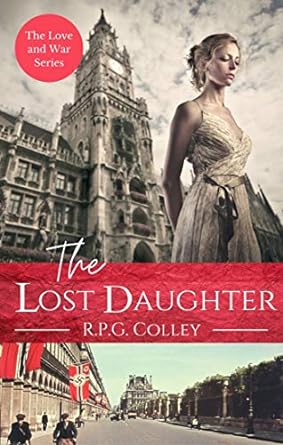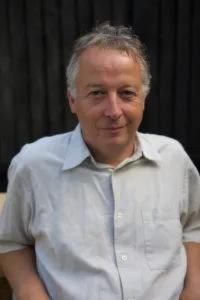 Today I’m delighted to welcome Rupert Colley back to the blog to talk about his latest historical novel, The Lost Daughter.
Today I’m delighted to welcome Rupert Colley back to the blog to talk about his latest historical novel, The Lost Daughter.
Rupert is the author of nine historical novels and also the creator of the History in an Hour collection of short works of non-fiction. Although focusing mainly on ’20th century war and misery’, his novels always convey the human story at the centre of war. Historical fiction with heart and drama.
Welcome, Rupert!
1) The Lost Daughter takes as its starting point the Nazi Lebensborn programme. What was this programme and what were its aims?
Yes, the Lebensborn was an odious programme thought up by Heinrich Himmler. Attractive, young women were housed in a home where they met and procreated with fine SS specimens, with the idea of producing lots of perfect Aryan babies. These babies would, in most cases, then be adopted by politically and racially pure families. As well as Germany there were many Lebensborn centres in Norway. The most famous product of the programme, born in Norway in November 1945, was Frida Lyngstad of ABBA.
2) I enjoyed the interweaving of different time periods in this novel because it greatly increases the element of suspense. Do you have the entire story planned out before you start writing? Do you have to do much rewriting?
I have it all planned out beforehand on a spreadsheet. Yes, the story may change a little as I progress but not much. A 350-page novel usually takes me six weeks. When I start, I write fast. I never rewrite because I’m too lazy. Actually, occasionally, I may add in a new scene but it’s rare. Once finished, I’ll leave it for about a month, and then return to it fresh for a round of simple editing. That is it!
3) What did your research look like for this book?
I know far too much about Nazi Germany and the Soviet Union, having, over the years, read far too many memoirs and histories and watched too many films – to the point of it being unhealthy! I also write a fair bit of non-fiction focussing on 20th century history.
4) Historical fiction seems to be enjoying something of a heyday at the moment. What do you think readers enjoy most about historical fiction, particularly books set in and around World War Two?
I think historical fiction has always been popular. And the Second World War in particular. I think it’s because it tested humankind in a way nothing else has; because, being only seven decades ago, it’s still within our reach; and because, at its most base, there’s a clear good guy / bad guy distinction. I try to address this in many of my novels, The Lost Daughter included, and portray a “good” German or two.
5) What are you working on at the moment and do you have any more releases planned?
The Lost Daughter is my first release in three years but I have another three ready to go. They include a rather ambitious novel called Song of Sorrow, about the journey of a cursed violin from late 19th century Germany to the fall of the Berlin Wall. Also, during lockdown, I wrote a trilogy of humorous books set in the 1980s (think Eleanor Oliphant meets Adrian Mole), which I plan to release under a pen name.
Thanks, Rupert, that was great. And good luck with your upcoming releases!
